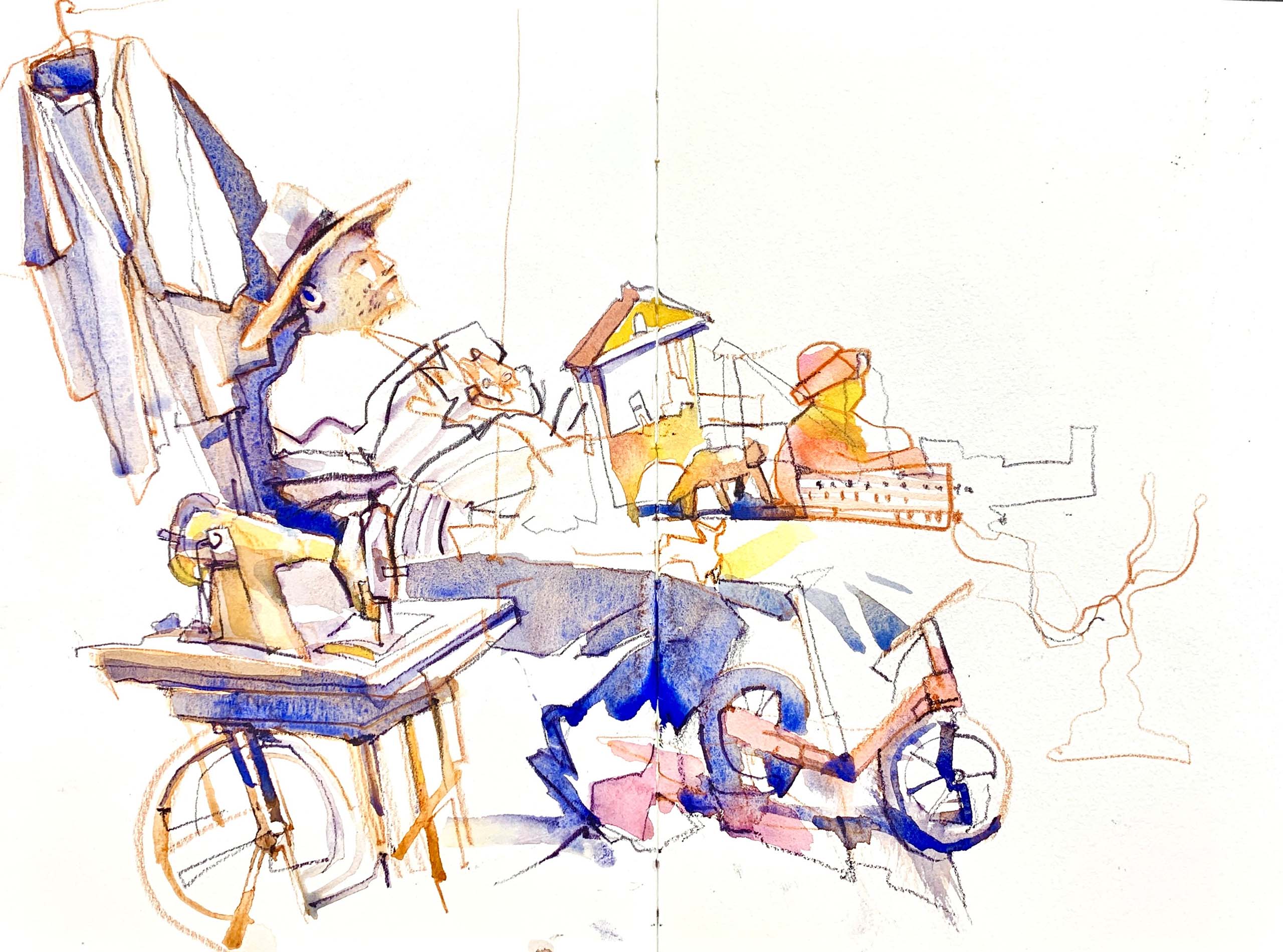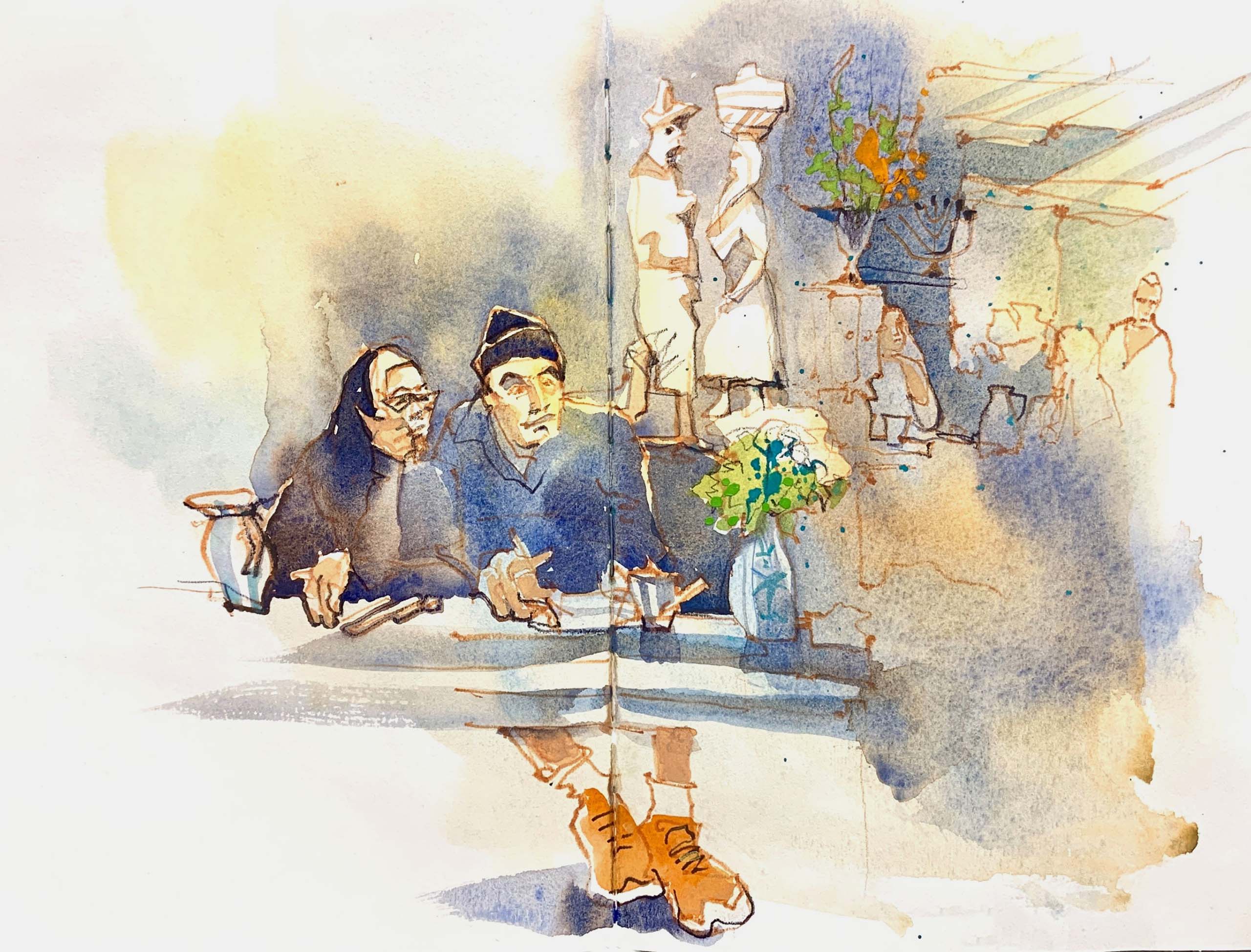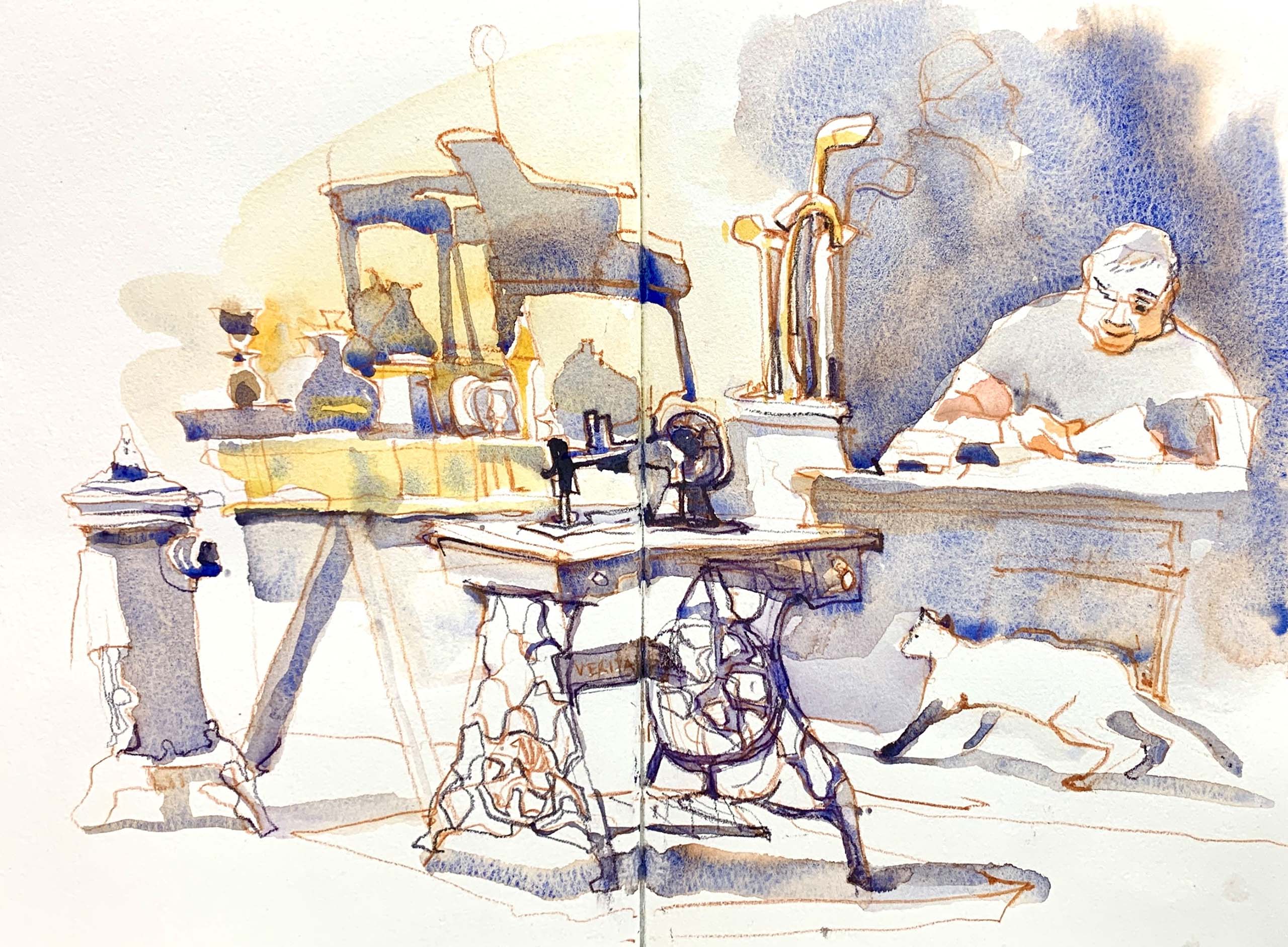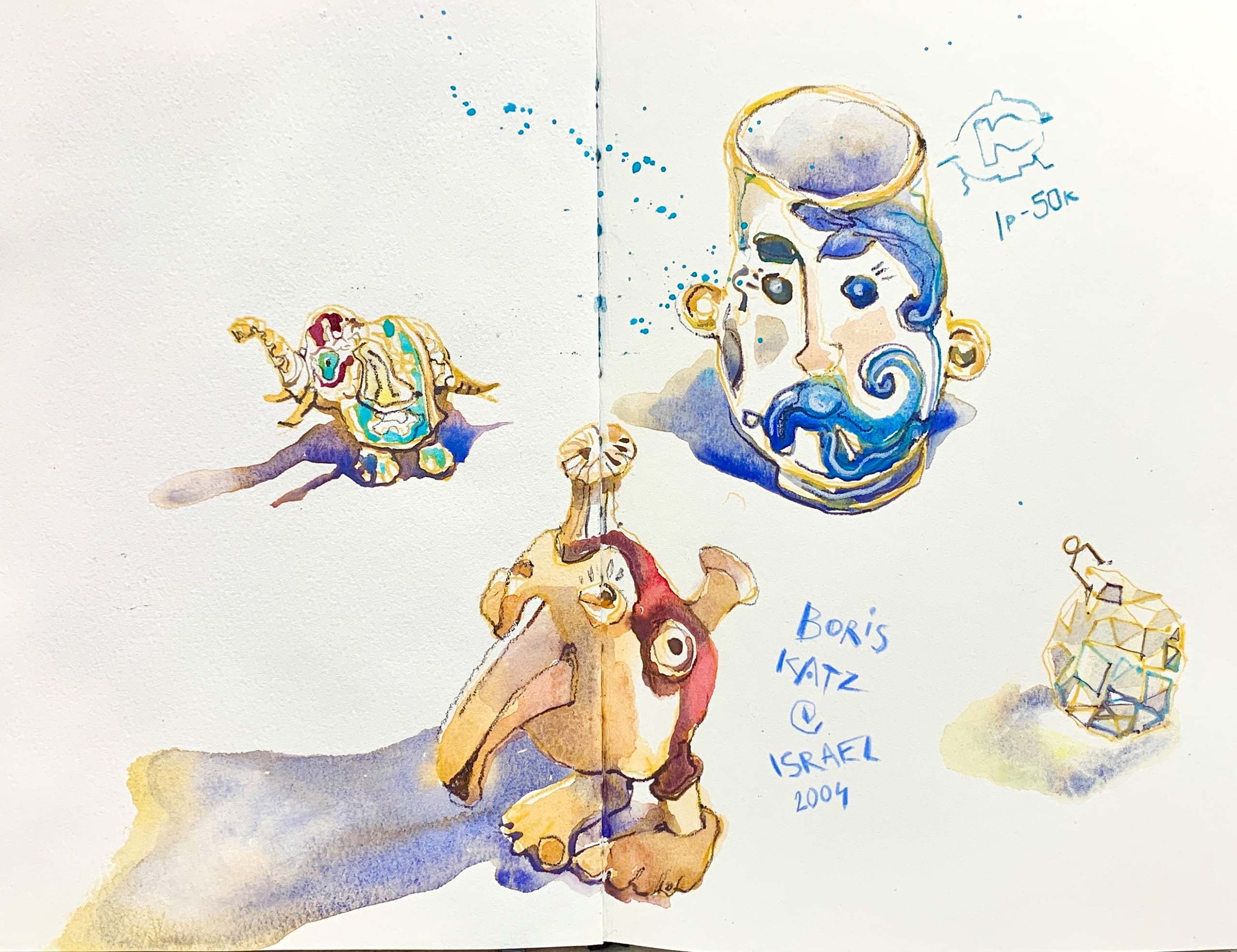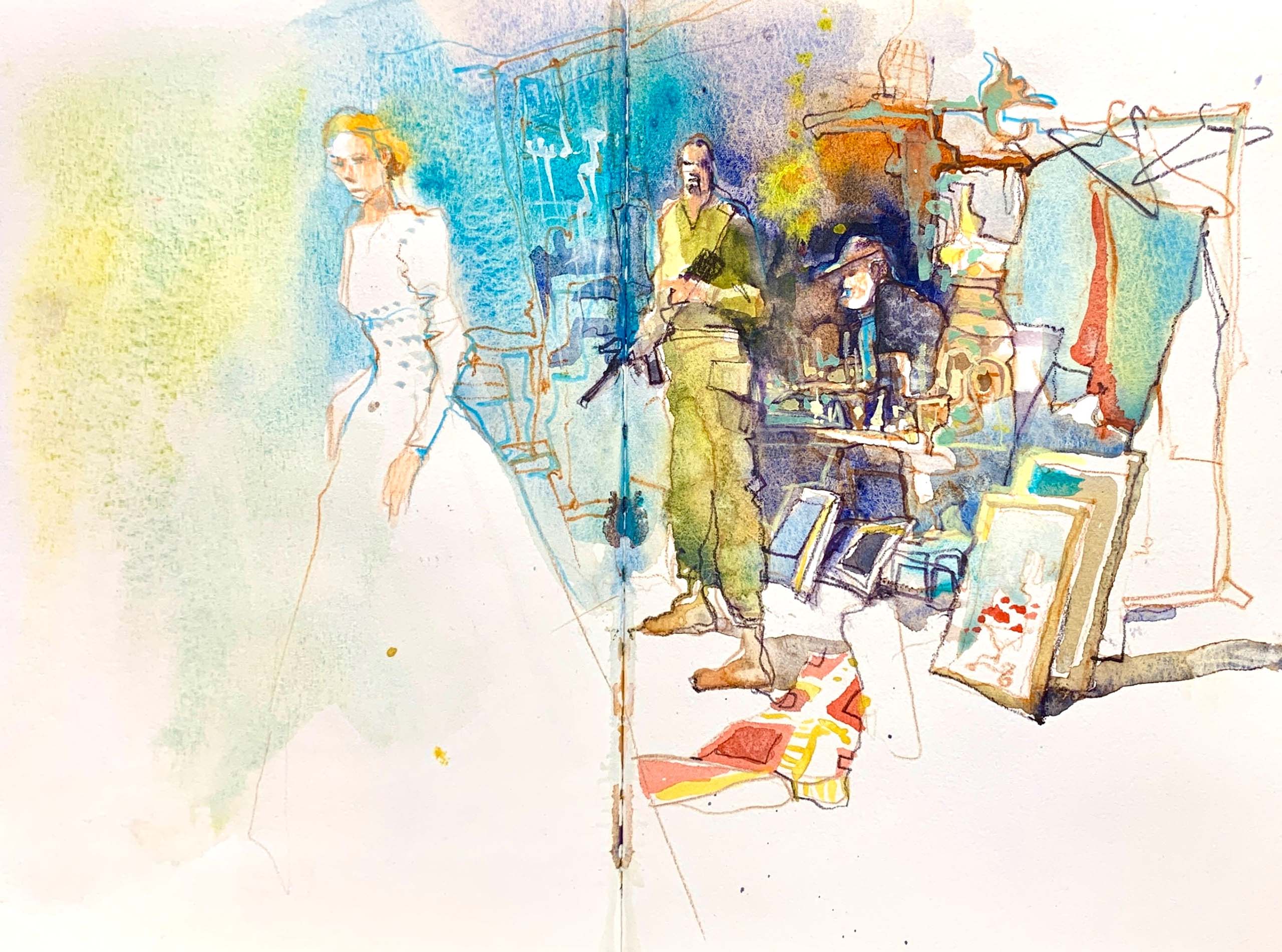I started working on this reportage on the sunny and hot days of September, before the Jewish New Year holidays. The atmosphere of the Jaffa flea market (“Shuk ha Pishpeshim” or simply the “Shuk”) is festive at any time of the year and on any day of the week, let alone during the holidays
My affection for this Jaffa gem is hard to put into words, but if I had to try, I’d call it bright, varied, colorful, noisy, and a beautiful blend of modernity and antiquity.

Here you don’t need to look for characters for the story, they are everywhere, just sit down in a cafe or on a bench with a sketchbook. Some seem to deliberately show no interest, while others do not hesitate to approach and ask what I am doing here.


The market’s old-timers, hailing from the Jewish community of Iran, have been trading here since the eighties or even the seventies. Their laconic demeanor carries a hint of disdain, yet a hard-hidden interest gleams in their eyes.

Asher’s Antique Shop: He has many shops in the Shuk. He comes from Egypt, lived for some time in France, then came to Israel. The store is about 20 years old. He buys goods from local traders, mainly from India and Iran.

“Who buys here? Designers, architects… to decorate interiors. Sometimes art students.” “Who are our neighbors? Anyone, there’s an Arabic cafe across the street, we’ve known each other for a hundred years, we live…work side by side, we don’t quarrel, he treats me to coffee, I tell him my stories.”
Yaffa Knafeh, touted as the best knaffe place in Israel (or at least in Tel Aviv), adds a sweet note to the market’s diverse offerings.
Knafeh is made with a flaky phyllo dough, creamy cheese, and a sweet syrup. It is recommended to eat it with ice cream and wash it down with black Arabic coffee.
Atidel, a saleswoman and cook, humorously wonders about their popularity, attributing it to being a part of a big family from Jaffa involved in the culinary business for years, having old traditions and secret recipes. “This is a relatively new place, only three years old… before that there was a place with falafel, but knaffe goes better… … after all, old recipes have weight… who doesn’t buy here … yes, it’s delicious.”

Cafe Puaa, one of the oldest places on the Shuk. Its furnishings are made up of items purchased from the Shuk itself. I think that this is one of the most organic places in the Shuk, combining both old and new, including its regulars.
My personal favorites are the antique shops, where I can lose myself in various artifacts, debris, and old photographs. The thrill of inventing stories about the lives these items once led is truly unmatched.
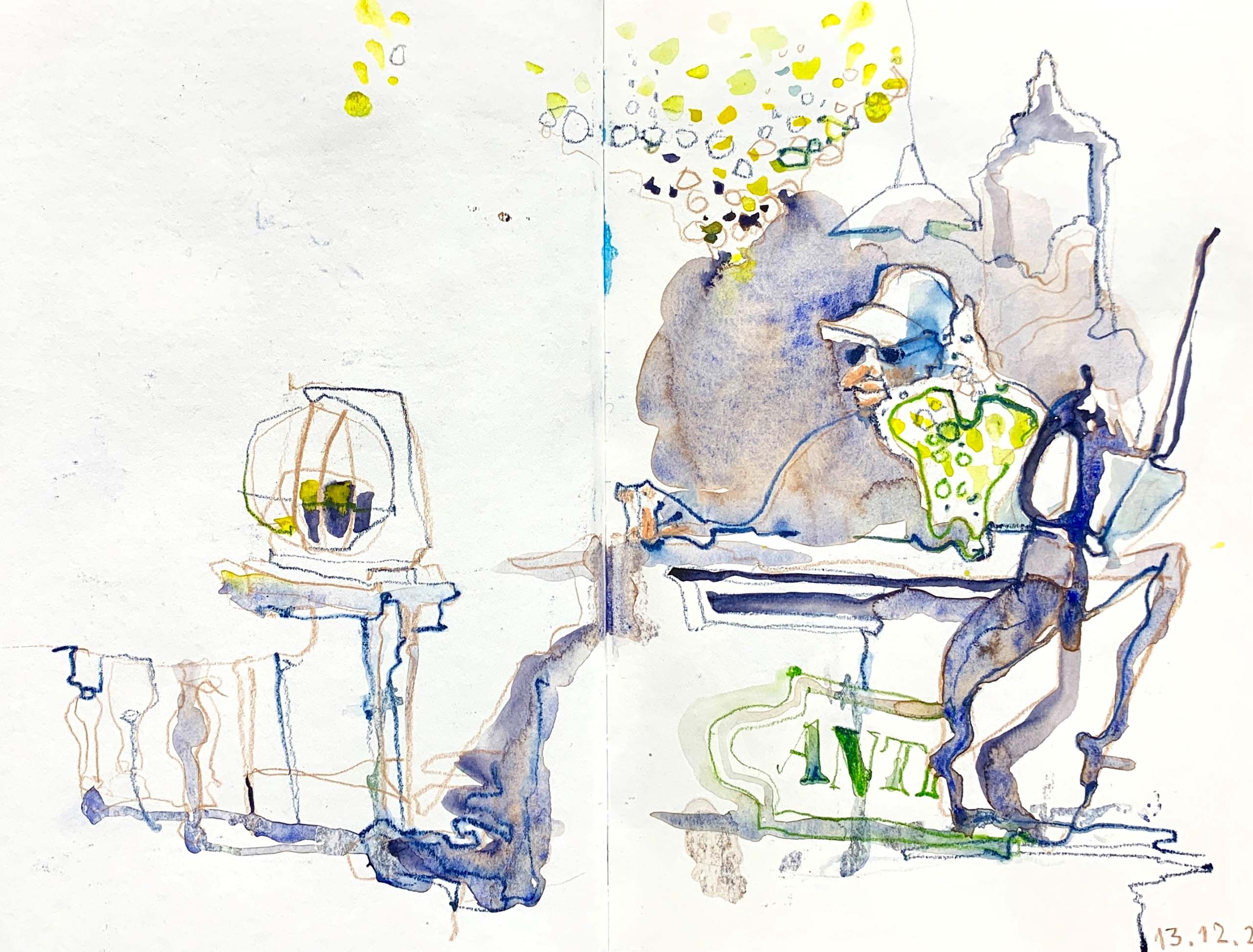
be here or draw?” Although he showed a reserved interest in what I was doing, he unfortunately refused to answer the questions: “Come some other time…”
My treasures from Shuk:
As this project unfolded, little did I anticipate the division of time into “before and after” the tragic events of October 7th—the day of the Hamas attack on Israel. The war became a stark reality, freezing time momentarily. Returning to the flea market a month later brought a mix of emotions.

Fortunately, the familiar faces remained—backgammon players, merchants, even the homeless. Yet, a noticeable silence hung in the air, with closed cafes, fewer tourists, and a sense of unity among the locals.

Reuven repairs the old carpets: “My hands are ruined, but I can’t live without work…”“How are things going?! What do you think? Yes, terrible! First Covid, now the war… I’ve been here for a long time… once upon a time carpets weren’t sold on every corner… You had to run around looking for a good carpet…… But I love this place, everyone knows me… Things have changed, the youth… made this place fashionable… I don’t like it, but what can I do?”
“Where do I buy the goods? Mostly Alte Zachen ( old things in Yiddish)… Here’s from him, for example”:

As the evening settled in, the flea market quieted down with shops closing one by one. In the midst of this, a bride in a fancy white dress showed up for a pre-wedding photo shoot. Life kept moving, indifferent to the changing scene.
Concluding this report proves challenging; there’s no definitive endpoint. Life persists amidst constant change, bringing joy and sorrow in equal measure to individuals. Finding solace in contemplation, I’m grateful for the chance to sketch, document, and be part of ongoing events.
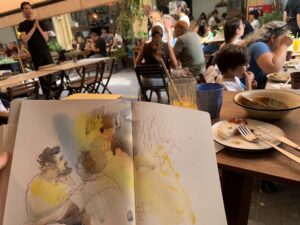

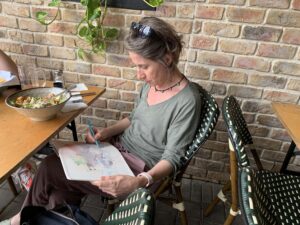
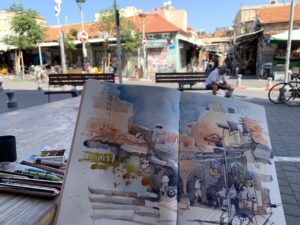
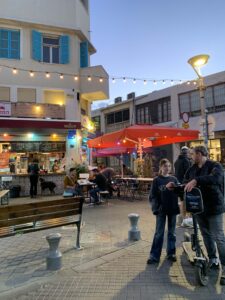
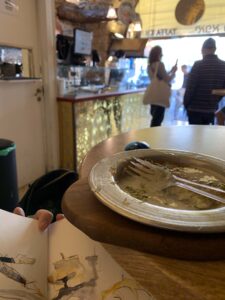
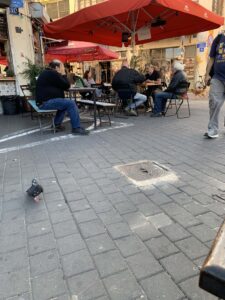


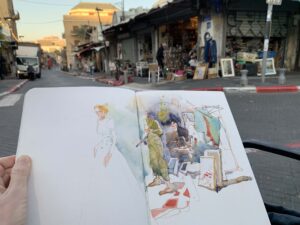
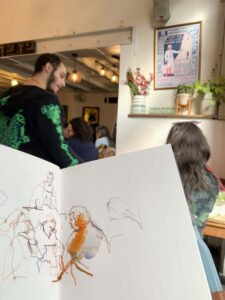
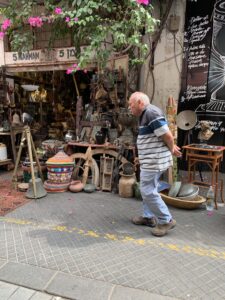
Share
Recent Posts
Drawing Attention June 2024
Drawing Attention, the official zine of the Urban Sketchers organization, communicates...
Read MoreVolunteer Opportunity: Urban Sketchers Seeks Fundraising Director
HOME Are you passionate about art and fostering a global artistic community?...
Read MoreThe USk Regional Events Grant Funding Programme 2024 / 2025
Season three of the USk Regional Events Grant Funding Programme is...
Read MoreCheck Out the Brand New USk Shop
Guess what? Our Urban Sketchers Shop just leveled up with some seriously...
Read More
